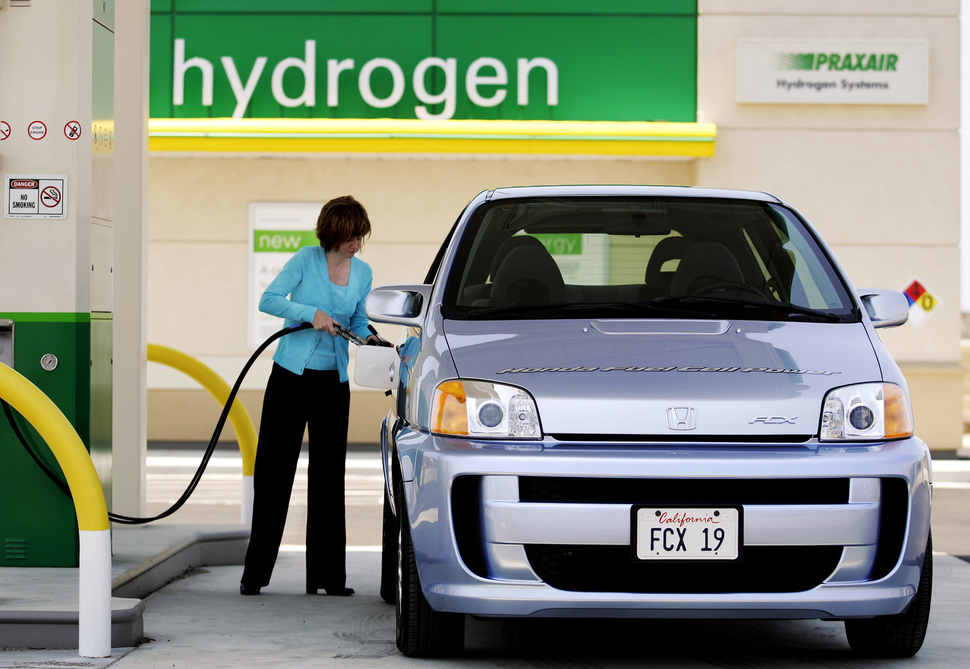Concerns over a risk can have profound effects on an innovation. Unfortunately, the way society perceives risk can also be manipulated, even down-right wrong. For example let’s take a look at the hydrogen vehicle, an innovation that could have been here today, since the concept of a hydrogen vehicle is older than the one of its petrol counterpart we are so familiar with. The biggest issue the hydrogen platform faced was the fear factor the petroleum industry spread during 1950’s. Yes, the hydrogen platform is inherently less safe than the internal combustion engine, but the propaganda exaggerated this safety concern to the point where this innovative idea was dead before it ever had a chance of reaching the market. What this example demonstrates is pure innovation failure, mostly due to anti-propaganda led by a competing industry.
Some odd 70 years later, the scientist at Toyota are making huge progress with their new hydrogen cars. The main concern the general public seemed to have with hydrogen was the inflammability it had when in direct contact with oxygen. The hydrogen storing tanks Toyota produces are safer, even bulletproof! [1] Unfortunately the infrastructure is lacking, you could count the number of hydrogen recharging stations worldwide using your fingers. Looking back at the ignorance cultivated by this propaganda, only for the sake of profits of the petroleum industry, one might ask what would the world look like today, if the hydrogen car use became widespread. Hydrogen combustion, for those of you unaware, does not produce any pollutants, the only byproduct of its reaction with oxygen is pure water! Imagine the potential decrease in environmental damage with the use of hydrogen… Ships, cars, trucks, even factories could use it to produce energy without destroying the environment. There’s a good reason why the science fiction writers of yesteryears perceived hydrogen power as something we will utilize in the furure – it is the future. [2]
Unfortunately, it will probably take a few decades until hydrogen is in widespread use, although electric cars are setting a great example of environmentalism (i.e responsibility). The next big thing the hydrogen vehicles are up against is the lack of infrastructure. No refueling stations means a very limited market region, therefore it is still seen as something futuristic, not yet to come. Thing is, the cars are ready for the market, Honda has had a hydrogen production car on sale since 2008 and Mercedes-Benz has been investing huge sums of money into hydrogen fuel cell design. But the upside of hydrogen is the fact that it can be produced anywhere, using water and electricity, (it might soon be possible to produce it out of air) [3,4]. Imagine a row of wind turbines by the seaside, using electricity generated to extract hydrogen out of seawater and pump it to the nearby refueling stations. It sounds like science fiction, but all the technology necessary is already available!
But with the current changes in the global ecosystem, will this change happen fast enough? Sea levels are rising and oxygen levels dropping, usually faster than even anticipated by climate scientists [5]. Quite a funny contrast we can see here – when we’re told something will put us at harm (i.e. hydrogen car), we’re quick about dismissing the whole concept, but when the climate change is being affected the general population will go on about their daily business without even noticing. It might be too late for our planet, some scientists say [6], but it’s never too late to change your attitude towards environmental innovations!
Sources:
[1] - http://gas2.org/2014/01/20/toyota-shoots-hydrogen-tank-to-make-a-point/
[3] - http://hyperphysics.phy-astr.gsu.edu/hbase/thermo/electrol.html
[6] - http://www.scientificamerican.com/article/have-we-passed-the-point-of-no-return-on-climate-change/
